As a car owner, it can be very unnerving when your car jerks while accelerating, cruising, backing up, braking, shifting, or when the air conditioning is on. It’s a common problem faced by many drivers and often indicates that something is wrong with your car. Not only can it cause discomfort and distress during driving sessions; but it can also lead to expensive repair costs if the underlying problem isn’t addressed in its early stages. Fortunately, there are usually some easy solutions to this issue that don’t require extensive repairs.
In this blog post, You’ll learn about common symptoms associated with each type of cause as well as advice on what measures to take in order to resolve the problem. In addition, we’ll also discuss some preventive steps you can take to avoid future issues with your car’s performance. Whether you’re experiencing occasional hiccups or long-term troubles with your ride, we hope this article serves as a helpful guide for solving any issues related to your vehicle’s jerking behavior.
Common Causes Of A Car Jerking When Accelerating
1: When Accelerating (at Low Speeds)
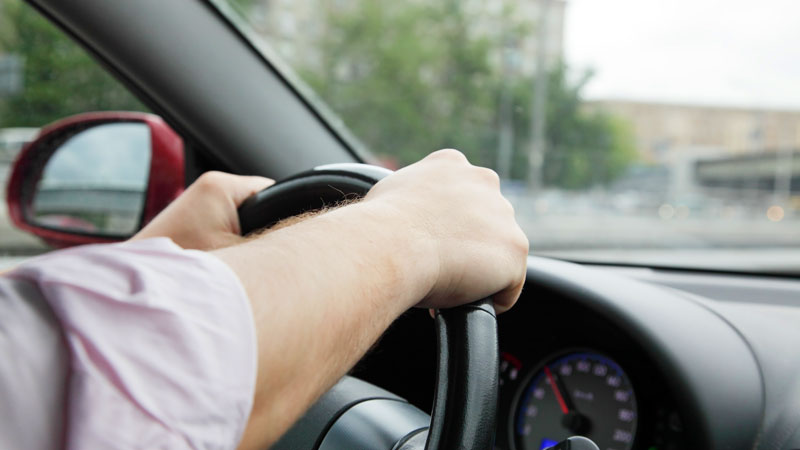
If your car jerks when accelerating at low speeds, it could be due to a number of causes or reasons. Here is a detailed look at some of the most common reasons and their solutions:
Faulty Ignition Components
Ignition components are responsible to provide a spark to the engine and play a major role in the functioning of your vehicle. Faulty spark plugs, wires, distributor caps, or rotors can all cause a car to jerk when accelerating at low speeds. The most common causes of faulty ignition components are age, heat build-up, and improper maintenance. If the car is jerking at lower speeds, then you may need to replace these components completely or clean them thoroughly using a spray-on silicone cleaner.
Dirty Fuel Injectors
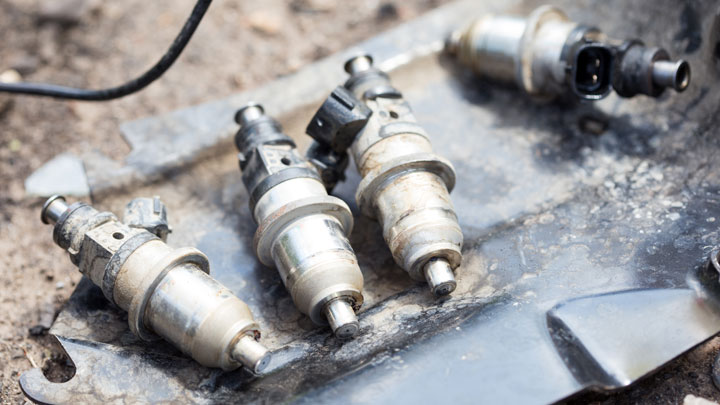
A fuel injector is responsible for injecting gasoline into the engine to create combustion. Fuel injectors become dirty due to a build-up of deposits in the injector over time. These deposits can prevent fuel from entering the engine and cause a car to jerk when accelerating at low speeds. This can be solved by using a fuel injector cleaner and running it through the fuel system to remove the deposits.
Impeded Intake Air Flow or Faulty MAF Sensor
The Mass Airflow Sensor (MAF) measures the amount of air entering the engine and helps to regulate the fuel mixture. If there is a problem with the MAF sensor, it can cause a car to jerk when accelerating at low speeds. This can be resolved by replacing the MAF sensor with a new one. Additionally, if there is an obstruction in the intake airflow, this can also cause jerking when accelerating at low speeds. This can be solved by cleaning the air filter to remove any debris or blockages that may be present.
Clogged Catalytic Converter
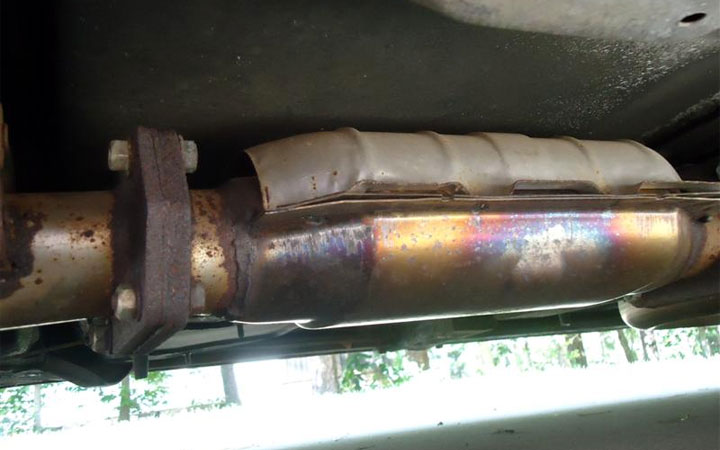
The catalytic converter is responsible for reducing emissions from the exhaust of a vehicle. If the catalytic converter becomes clogged, it can cause a car to jerk when accelerating at low speeds due to an excessive amount of exhaust pressure. In this case, you may need to replace the catalytic converter in order to solve the issue.
Worn Throttle Cable
The throttle cable is responsible for controlling the engine’s speed by connecting the accelerator pedal to the throttle body. If the cable becomes worn, it can cause a car to jerk when accelerating at low speeds as it will not be able to adjust the amount of air entering the engine correctly. This issue can be solved by replacing the throttle cable.
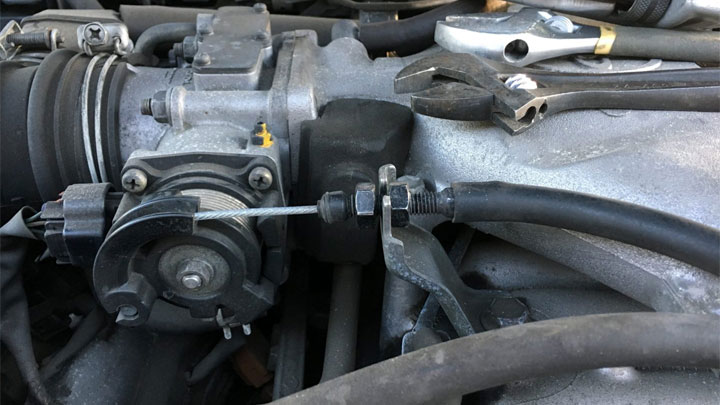
It is important to remember that if your car jerks when accelerating at low speeds, there may be an underlying issue that needs to be addressed in order to ensure safe and reliable driving. If the cause of the jerking cannot be identified or resolved with these solutions, you should take your car to a qualified mechanic to have it looked at.
By following these steps, you can diagnose and resolve the issue of a car jerking when accelerating at low speeds and ensure your vehicle is running safely and reliably.
2: When Accelerating (at High Speeds)

There are several potential causes of a car jerking when accelerating at high speeds. The most common ones and their solutions are as follows:
Ignition System Issues
Ignition system issues can cause the car to jerk when accelerating. This is due to a misfire or spark plug failure, which can lead to engine stalling and jerking. When the spark is momentarily lost, incomplete combustion transpires, leading to an abnormal engine lope. A thorough tune-up should be able to identify any ignition system issues.
Fuel System Issues
If a vehicle is experiencing jerking during acceleration, then the fuel system may be the cause. If the fuel filter is clogged, the fuel pressure regulator isn’t working properly, or the fuel injectors are dirty, then they can cause an irregular fuel delivery, leading to jerking during acceleration. This may be resolved by replacing or cleaning the fuel filter, fuel pressure regulator, and fuel injectors.
Restricted Air Intake
When air intake is restricted, your car may jerk when accelerating. This is because the engine isn’t getting enough air to allow for proper combustion and create power. The air filter should be checked for dirt and debris, as a clogged air filter can cause the engine to jerk. If the air filter is dirty, replace it and your car should no longer jerk when accelerating.
Wrong Alignment of the Wheels
If your car is jerking when accelerating, the wheels may be misaligned. This can cause erratic acceleration and jerking because the force of friction between the tires and the road surface is unevenly distributed, leading to a lopsided and unsteady ride. To resolve this issue you should have your vehicle’s alignment checked and adjusted.
Your Skills With Manual Transmission
If you’re driving a manual transmission vehicle, then your skills may be the problem. If you’re not experienced enough with manual transmissions, then it’s possible that you are not shifting correctly and this is causing the jerking during acceleration. You should practice your manual transmission skills in order to resolve this issue.
Motor Winding Issues
Your car may jerk when accelerating due to motor winding issues. If the windings in your car’s electric motor are worn out or damaged, then the motor won’t be able to provide enough power to keep the car running smoothly. This issue can be resolved by replacing or repairing the windings in the electric motor.
Defective Carburetors

The carburetor is responsible for controlling the amount of air and fuel in the engine. If your car has an old-fashioned carburetor, then it may be the cause of jerking when accelerating. Carburetors can become clogged or damaged over time, and this can lead to problems with acceleration. This issue can be resolved by cleaning or replacing the carburetor.
So, if your car is jerking when accelerating, it’s important to check these three common causes. With proper diagnosis and maintenance, you can prevent your car from jerking and ensure smooth acceleration.
Common Causes Of A Car Jerking When Cruising
When cruising, a car can start to jerk due to a number of potential causes. The most common culprits are:

Engine Misfire
While cruising, an engine may hesitate or jerk due to the same kind of issue that could cause acceleration problems. A misfire on one or more cylinders is generally the main source of these kinds of issues. A misfire can be caused by a variety of things such as spark plugs, ignition coils, or low fuel pressure. In order to identify the cause of a misfire, you must analyze each cylinder for the correct spark and validate that fuel pressure is adequate.
Faulty Mass Air Flow Sensor
This component is responsible for providing the engine with the proper air and fuel ratio. If this sensor fails, a jerking sensation during cruising may be felt as it will cause the engine to run too lean or too rich. By inspecting this sensor, you can determine if it is working correctly and if not, replace it.
Oxygen Sensor
The oxygen sensor is another key component in maintaining the correct air-to-fuel mixture. If this sensor fails, it can cause the engine to run either too lean or too rich which will lead to a jerking sensation while cruising. By testing the output of this sensor, you can determine if it has failed and needs to be replaced.
Throttle Body and/or Throttle Position Sensor
The throttle body controls the amount of air entering the engine while the throttle position sensor sends this information to the computer. If either of these components fails, it can cause incorrect readings which will lead to a jerking sensation when cruising. By inspecting these components, you can determine if they are functioning correctly and replace them as needed.
Fuel Filter Clog
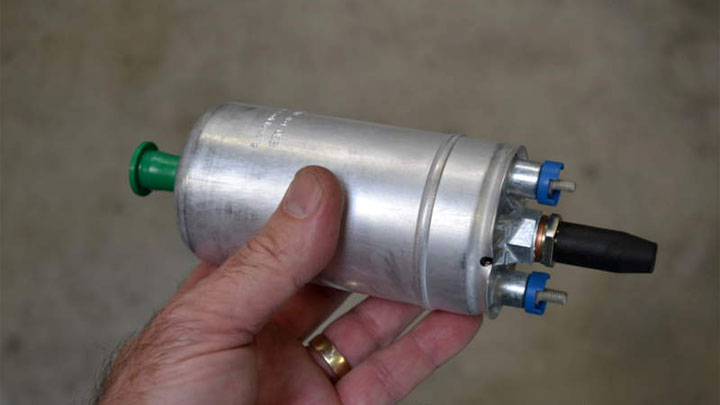
A fuel filter clog can also cause a car to jerk while cruising. This issue is caused when the fuel filter becomes blocked and restricts the flow of fuel to the engine, causing it to run too lean or too rich. In order to fix this problem, you must replace the fuel filter with a new one.
Damaged Clock Spring Wiring
The clock spring is a spiral wound wire located at the base of the steering wheel. It is responsible for providing power to the airbag system, horn, and other components. Over time, it can become damaged or worn due to constant turning and flexing of the wheel. If this wire is damaged, the airbag light will illuminate as well as other electrical faults, including jerking when cruising. If you suspect that this issue is causing your car to jerk when cruising, have the clock spring wiring inspected and replaced if necessary.
By addressing these three common causes of car jerking when cruising, you will be able to identify the source of your problem and get back to running safely and reliably. With proper diagnosis and maintenance, you can prevent your car from jerking and ensure a smooth ride.
Common Causes Of A Car Jerking When Braking

When your car is jerking when accelerating or braking, the most likely causes are:
Warped Rotors
Warped rotors work like flat spots on your car tires. When you press the brakes and the rotors vibrate, it causes a jerking motion. This is because the rotors are not able to spin smoothly, which can cause vibrations in the system. A good way to detect this is if the steering wheel or brake pedal vibrates when you press it. The rotors can be machined to remove the warped spots and make them smooth, but it’s best to replace them with new ones.
Air in ABS System
The Anti-lock Braking System (ABS) uses air pressure to control the brakes. If there is a leak or a malfunction in the system, it can cause the brakes to jerk when applied. This is because the air pressure is not properly controlling the brakes, so they keep jerking until the pressure is equalized. The ABS system can be diagnosed with a scan tool and repaired by a professional mechanic.
Brake Hoses
The brake hoses can also cause a jerking motion when the brakes are applied. This is because the brake fluid is not able to flow freely through the hoses, which can cause a jerking sensation. The brake hoses should be inspected for damage or leaks and replaced if needed.
Worn Brake Pads
If the brake pads are worn, then they may not be able to grip the rotors properly, which can cause a jerking motion when the brakes are applied. It’s important to regularly inspect and replace the brake pads to ensure they are in good condition.
Faulty Sensors
If the car is equipped with a stability control system, then it may have sensors that detect the speed and position of the wheels. If the sensors are faulty, then they can cause a jerking motion when the brakes are applied. The sensors should be tested to ensure that they are working properly.
Now that you know the common causes of car jerking when accelerating, cruising, and braking, you can better assess your vehicle’s performance. If any issues are found, make sure to take your car to a qualified mechanic who can properly diagnose and repair it. With proper maintenance and repairs, you can ensure smoother acceleration and braking for many miles to come.
Common Causes Of A Car Jerking When Shifting
If your car jerks when you try to shift gears, it could be caused by a few different things. Here are the most common causes:

Low Transmission Fluid
To ensure a seamless running of the torque converter, an automatic transmission needs to be provided with a generous supply of proper transmission fluid that is essential for a successful gear shift. When the fluid level is low, the pressure needed to complete a shift isn’t there, which can result in jerky shifts. If you notice that your car is jerking when shifting gears, check the transmission fluid level to see if it needs to be topped off.
Faulty Sensors or Solenoids
Automatic transmissions rely on a range of sensors and solenoids to ensure smooth shifting. When any of these components are damaged or malfunctioning, the results can be delayed and erratic shifts. Oftentimes, such technical issues are more obvious when changing from first gear to second or moving into overdrive. If you suspect that the problem is related to faulty sensors or solenoids, it’s best to have it serviced and evaluated by a professional.
Faulty Vacuum Lines
Vacuum lines are used in many cars to control the shifting of gears. This is because the lines can open and close shut the valves that control how much fluid is used during shifting. If these lines are not functioning properly, shifts may become jerky and erratic. To check if this is the cause of the issue, you should inspect all vacuum lines for any signs of damage or corrosion.
Clutch Problems
If you have a manual transmission, it could be due to worn or damaged clutch components. Over time, the clutch material may wear out which can result in jerky shifts when trying to change gears. This is usually more noticeable when shifting into first and second gears. If you suspect this is the cause of the problem, it’s best to get your car serviced and have the clutch inspected and replaced if necessary.
Damaged or Worn Internal Components
The internal components of a transmission can be extremely delicate, and even the slightest damage or wear can lead to jerky shifting. Things like broken bands, worn-out gears, or damaged seals can cause the engine to jerk while shifting gears. If you believe this is the issue, it’s best to have your vehicle inspected by a professional mechanic so they can assess the damage and make the necessary repairs.
In conclusion, there are many potential causes of a car jerking when shifting gears. To determine the root cause of your vehicle’s issue, it’s best to have it inspected by a certified mechanic. With their help, they can quickly identify any underlying problems and advise on the appropriate repairs.
Common Causes Of A Car Jerking When Backing Up

If your car is jerking when you back up, it can be caused by a few different issues. Here are some of the most common reasons:
Transmission-Related Issues
A noticeable jerk or hesitation when attempting to reverse can be a common symptom of aging transmission and may have several possible causes. Shifting delays and hard shifting can be caused by a low transmission fluid level, which can cause the system to struggle when trying to shift. Other issues may include internal damage or wear in the transmission, an electrical issue with the transmission control module (TCM), or problems with the solenoids that control shifting.
U-Joint Slack
U-joints, which connect the drive shaft to the axle, can experience significant wear over time. If there is slack in any of the U-joints, it can cause vibrations or jerking when backing up. Whenever you shift your car into reverse, it will naturally experience some amount of slack. But if the u-joints are overly worn out, that slack can result in a jarring jerk as soon as your vehicle begins to move backward.
Problems with Drive Shaft
If the car jerks when attempting to back up and no other visible issues can be found, the problem may lie within the drive shaft itself. Drive shafts are responsible for transferring power from the engine to the wheels and can become misaligned when driving in reverse. When this occurs, the drive shaft will struggle to transfer power to the rear wheels and cause jerking. A broken or bent drive shaft can also cause jerking while in reverse.
Incorrectly Adjusted Clutch
A car may jerk when backing up if the clutch is not properly adjusted. The clutch is responsible for connecting the engine to the transmission and, when worn out or incorrectly adjusted, can cause a jerking sensation when shifting into reverse. An incorrect clutch adjustment can also lead to a drop in power, as the gears will struggle to engage.
Excessive Engine Load
Finally, jerking while attempting to back up can also be caused by an excessive engine load. If the engine is overloaded with weight or if the car is pulling too much weight, it can take longer to shift into reverse and cause jerking as the car moves backward. In some cases, this issue can be solved by reducing the amount of load within the engine.
No matter what’s causing your car to jerk when backing up, it’s best to have it checked out by a professional mechanic who can properly diagnose the issue. Ignoring these symptoms could result in more serious damage and more costly repairs down the road. Therefore, if you notice your car jerking when backing up, schedule an appointment with your trusted auto repair shop as soon as possible. With their experience, they’ll be able to identify the cause of your car’s jerking and recommend the necessary repairs.
Common Causes Of A Car Jerking When Idling

If your car is jerking when idling, there could be a few possible causes of this problem:
Moisture Under Distributor Cap
The distributor of an engine is responsible for sending a spark to each spark plug at the right time. If there is moisture under the distributor cap, it can lead to the car jerking when idling. This can be caused by water seeping through cracks in the distributor cap or from condensation due to high humidity. If you want to fix this issue, you should replace the distributor cap or have it serviced and make sure to keep it clean and dry.
Faulty IAC Valve
The IAC (Idle Air Control) valve is responsible for controlling the amount of air entering the engine while it’s idling. If this valve becomes dirty or faulty, it can cause a car to jerk when idling as it struggles to maintain the right air-fuel mixture. To fix this issue, you should clean or replace the IAC valve.
Fouled Spark Plugs
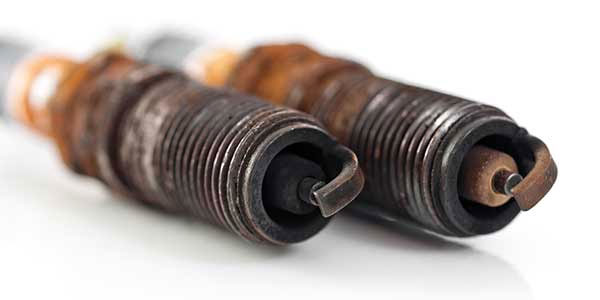
Your spark plugs may be fouled due to a buildup of oil or carbon deposits. This can cause the car to jerk when idling, as it’s not receiving the necessary spark. To fix this issue, you should clean or replace your spark plugs as needed and make sure they are in good working condition.
Restricted Fuel Flow
A restricted fuel flow can also cause jerking when a car is idling. This could be due to a dirty air filter, clogged fuel injectors, or a blocked fuel line. To fix this problem, you should check the air filter and make sure it’s clean, inspect your fuel lines for leaks or blockages, and have your fuel injectors serviced.
Vacuum Leak
A vacuum leak in your vehicle can cause the car to jerk when idling. This is because a vacuum leak prevents the necessary air and fuel mixture from getting through to the engine, causing it to sputter or stall. To fix this issue, you should inspect all hoses and connections for any cracks or loose fittings and replace them as needed.
Clogged Fuel Filter
A clogged fuel filter can also cause your car to jerk when idling. This is because a clogged or dirty filter prevents the necessary amount of fuel from getting to the engine, making it sputter or stall. To fix this issue, you should replace the fuel filter and make sure to keep it clean and free of debris.
In conclusion, there are several common causes of a car jerking when idling. If you encounter this problem, you should inspect the distributor cap and IAC valve, clean or replace the spark plugs, check the air filter and fuel lines for blockages, inspect all hoses and connections for vacuum leaks, and replace the fuel filter if needed. By taking these steps, you can resolve the issue and get your car running smoothly again.
Common Causes Of A Car Jerking When the A/C is On
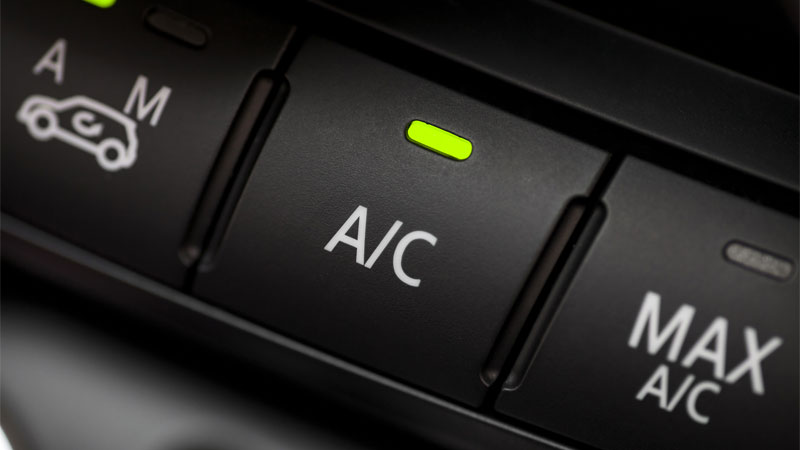
If your car is jerking when you turn on the air conditioning, it could be a sign of an underlying issue. There are several potential causes for this issue, some of which require immediate attention. The most common causes are:
Faulty IAC Valve
The Idle Air Control (IAC) valve is responsible for regulating the amount of air that enters the engine when it is running at idle. When it becomes faulty, it can cause jerking in your vehicle when you turn on the A/C. You will likely need to have this valve replaced if this is the issue.
Low Coolant Levels
Low levels of coolant can cause jerking when the air conditioner is turned on. The A/C compressor needs to be cooled with coolant in order to function properly, and if there isn’t enough coolant available, it can lead to jerking. To fix this, simply refill the radiator with antifreeze/coolant and see if this resolves the issue.
Blocked Condenser
The condenser is responsible for cooling the air that comes out of your A/C vents. If it becomes blocked with debris or dirt, it can cause jerking when you turn on the A/C. To fix this, use a garden hose to spray off the condenser and remove any debris that may be blocking it.
Low Refrigerant Levels
The refrigerant is the liquid that is responsible for cooling your vehicle’s interior. If there isn’t enough of this in the system, then you may experience jerking when turning on the A/C. To fix this, you will need to have the system refilled with refrigerant.
Faulty Compressor
If the compressor has become faulty, it can cause jerking when you turn on the A/C. This is a complicated repair that should be done by a professional mechanic.
Ultimately, if your car is jerking when you turn on the A/C, it can be a sign of an underlying issue. It is important to have this checked out by a professional mechanic as soon as possible in order to avoid further damage to your vehicle. By understanding the most common causes and getting the necessary repairs done on time, you can ensure your car runs smoothly and without any issues.
Wrapping Up
Car jerking can be a very inconvenient and potentially dangerous issue for drivers. Ignoring the problem or waiting too long to take action can lead to more costly repairs in the future. To avoid this, it is important to take preventive measures such as regular inspections and maintenance of your vehicle, as well as being aware of any common symptoms associated with car jerking. Additionally, if you do start feeling issues related to jerking while driving, it is recommended that you take your car to a certified mechanic immediately in order to diagnose and repair the underlying problem. As long as the cause is addressed in its early stages, it can help ensure that you have a safe and comfortable driving experience each and every time you get behind the wheel!
Frequently Asked Questions
Jerking when giving the car gas can be caused by a variety of different issues, including spark plug failure, fuel filter problems, a clogged or damaged fuel injector, faulty ignition coils, an incorrect air-fuel mixture, or low engine compression. It is recommended to have your vehicle inspected and diagnosed by a professional mechanic for an accurate diagnosis and appropriate repair.
No, a car should accelerate smoothly with no jerking or lurching movements. When a car jerks or lurches when accelerating, it is generally due to a problem with the vehicle. If you experience jerking or abrupt stopping of your car while accelerating, it is essential to quickly identify and address the problem.
Generally, it is recommended that you get an oil change every 3,000 to 7,000 miles or every three to six months – whichever comes first. However, your car’s owner manual should outline the manufacturer’s recommended oil change interval for your specific vehicle.
Jerking while driving can indicate a variety of different issues, depending on the severity and frequency of the jerk. Common causes can include transmission problems, spark plug failure, fuel filter problems, clogged or damaged fuel injectors, faulty ignition coils, or incorrect air-fuel mixture. If your car is jerking it is important to have it inspected and diagnosed by a professional mechanic as soon as possible.
If your RPMs are going up and down while parked, it is likely due to an issue with your idle air control valve (IAC). This valve helps regulate the amount of air going into the engine so that it can maintain a smooth idle. If there is a problem with this valve, it will cause your RPMs to fluctuate while parked. It is recommended to have your vehicle inspected and diagnosed by a professional mechanic to determine the underlying cause of this issue.
If your car is jerking when you give it gas, it is important to have it inspected and diagnosed by a professional mechanic as soon as possible. Driving a car that has this issue can cause further damage to the engine and could potentially be dangerous. Thus, until the underlying cause of the problem is determined, it is best to refrain from driving the vehicle.
Note: This content is for informational purposes only and does not constitute professional advice nor should it be taken as such. Always seek the help of a qualified mechanic when dealing with issues related to your car’s transmissions.
